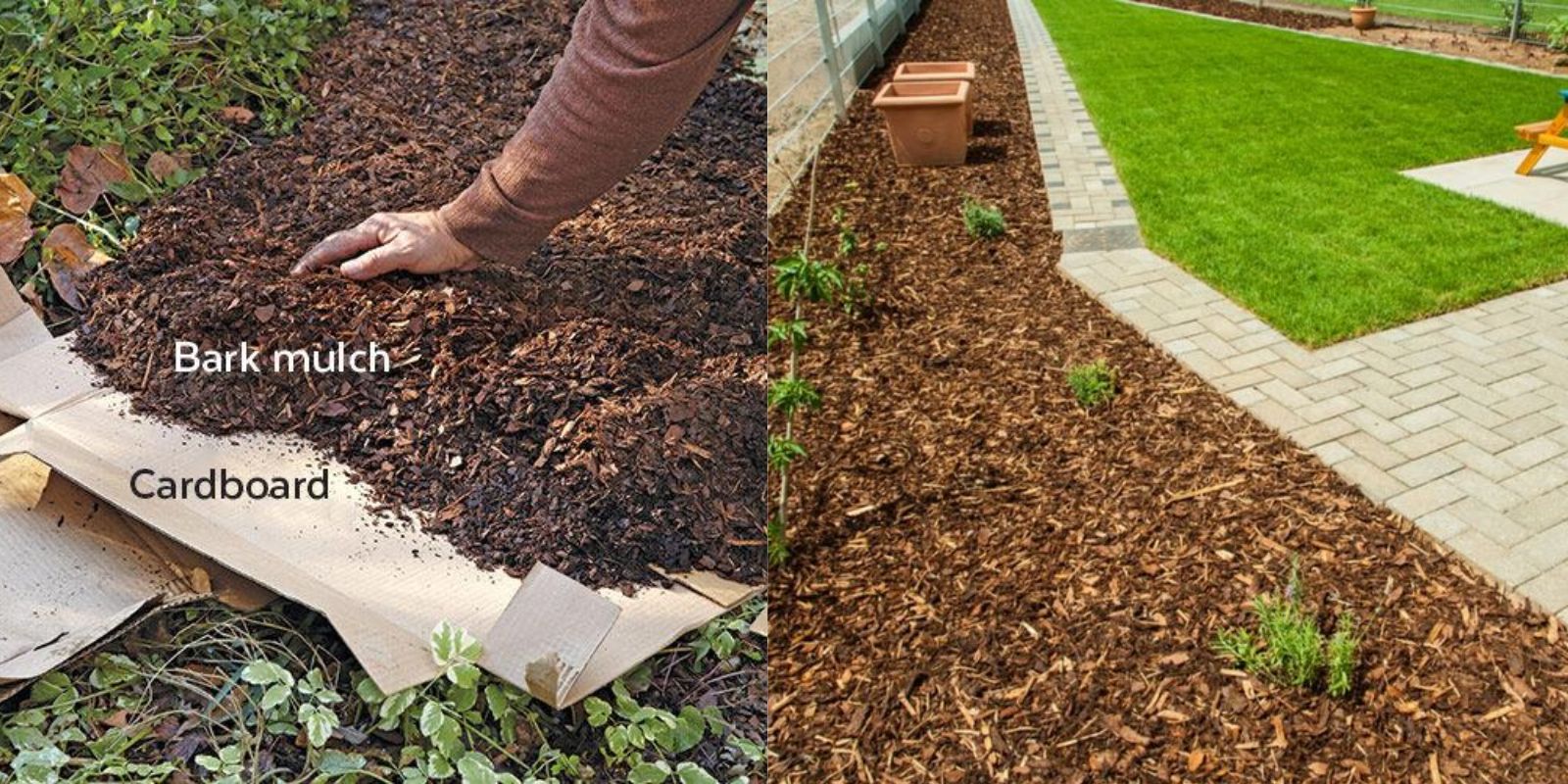Mulch is a gardener’s best friend. It conserves moisture, improves soil health, and enhances the overall aesthetics of your garden. However, one of the persistent challenges that gardeners face is keeping weeds out of mulch. Weeds not only compete with your plants for nutrients and water but can also diminish the beauty of your garden. Fortunately, there are several effective strategies you can employ to keep weeds at bay and ensure that your mulch remains an asset rather than a liability. This comprehensive guide will explore how to keep weeds out of mulch and maintain a pristine, thriving garden.
Introduction
Mulch serves as a protective blanket for your garden beds, helping to retain soil moisture, regulate temperature, and suppress weed growth. However, despite its many benefits, mulch can sometimes become a breeding ground for weeds if not managed properly. Weeds can germinate in mulch if the conditions are right, particularly if the mulch layer is too thin or if the mulch contains weed seeds. To prevent these issues, it’s essential to implement effective strategies for weed control.
In this article, we’ll cover everything from selecting the right mulch to applying it correctly and maintaining it over time. By following these steps, you’ll be able to keep your garden weed-free and enjoy the full benefits of mulching.
Step 1: Choose the Right Mulch
Opt for Organic Mulches:
Organic mulches, such as wood chips, bark, straw, and shredded leaves, are often preferable for weed suppression. They not only provide excellent weed control but also improve soil fertility as they decompose. Organic mulches can help prevent weed seeds from germinating and provide a natural barrier against weeds.
Avoid Mulches with Weed Seeds:
When purchasing mulch, ensure it is free from weed seeds or other contaminants. Some mulches, particularly those made from yard waste or composted materials, may contain weed seeds that can sprout and spread. If possible, choose mulches from reliable sources or use mulches you have prepared yourself.
Step 2: Apply a Weed Barrier
Landscape Fabric:
Landscape fabric is an effective weed barrier that you can place under your mulch. It is designed to block weed growth while allowing water and air to reach the soil. To use landscape fabric:
- Lay it over the soil in your garden bed before applying mulch.
- Cut holes for plants, making sure the fabric covers all bare soil areas.
- Secure the fabric with garden staples or pins to keep it in place.
Cardboard or Newspaper:
Cardboard or newspaper can also serve as a weed barrier. They are biodegradable and provide a good initial barrier against weeds:
- Lay down a layer of cardboard or newspaper over the soil.
- Overlap the edges to prevent weeds from slipping through.
- Cover the cardboard or newspaper with mulch to keep it in place and enhance its effectiveness.
Step 3: Apply Mulch Thickly
Optimal Mulch Depth:
A thicker layer of mulch provides better weed suppression. Aim for a depth of 2-4 inches. This thickness is effective in blocking sunlight and preventing weed seeds from germinating.
Even Distribution:
Spread mulch evenly across the garden bed. Avoid piling mulch against plant stems or trunks, as this can lead to moisture-related issues and pest problems. Instead, keep mulch a few inches away from the base of plants to promote healthy growth.
Step 4: Keep Mulch Away from Plants
Prevent Moisture Problems:
Mulch piled up against plant stems can trap moisture and create a conducive environment for diseases and pests. To prevent this:
- Maintain a gap of 2-4 inches between the mulch and plant stems or bases.
- This space helps prevent issues such as root rot and encourages better airflow around plants.
Pest Management:
Keeping mulch away from plant stems also reduces the risk of pests like slugs and snails, which can thrive in damp, mulched conditions. Regularly inspect your garden for any signs of pest activity and address them promptly.
Step 5: Regularly Monitor and Refresh
Periodic Checks:
Regularly inspect your mulch for any signs of weed growth or degradation. If you notice any weeds, remove them immediately before they have a chance to spread.
Refresh Mulch as Needed:
Over time, mulch can decompose and become less effective at weed suppression. Add a fresh layer of mulch annually or as needed to maintain its effectiveness. Refreshing the mulch not only helps with weed control but also improves the appearance of your garden.
Manage Decomposition:
As organic mulch decomposes, it may create spaces where weeds can grow. To counteract this, periodically turn or fluff the mulch to prevent it from becoming too compacted. This also helps to maintain good soil aeration and promotes even decomposition.
Troubleshooting Common Issues
Weed Seeds in Mulch:
If you find weeds sprouting in your mulch, it may be due to weed seeds present in the mulch. Consider switching to a different type of mulch or sourcing mulch from a different supplier. Using a weed barrier underneath the mulch can also help mitigate this issue.
Poor Weed Control:
If your mulch is not providing adequate weed control, check the thickness and distribution. Increase the mulch depth if necessary and ensure it covers all exposed soil areas. Additionally, make sure the mulch is free from contaminants and adequately covers the entire garden bed.
Mulch Quality:
If the quality of your mulch deteriorates or if it becomes overly compacted, it may be less effective at suppressing weeds. Use high-quality mulch and consider incorporating a mix of materials to improve its performance.
Conclusion
Keeping weeds out of mulch requires a combination of thoughtful planning and ongoing maintenance. By selecting the right mulch, applying a weed barrier, and maintaining a proper mulch depth, you can significantly reduce the chances of weeds taking root in your garden. Regular monitoring and refreshing of your mulch will help ensure that your garden remains beautiful and weed-free.
Take action today:
Transform your garden into a weed-free paradise with these effective mulch management techniques! 🌿🌸

